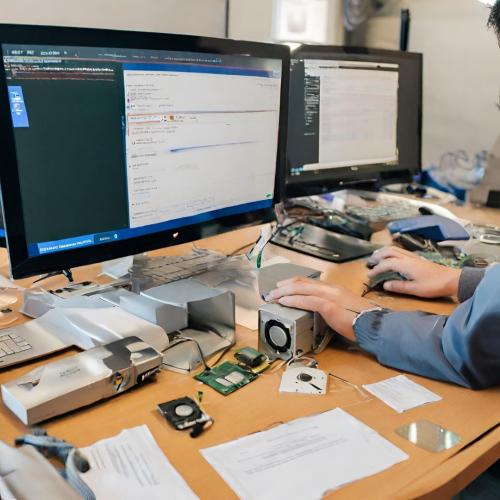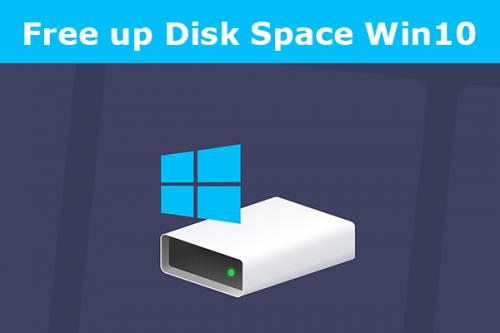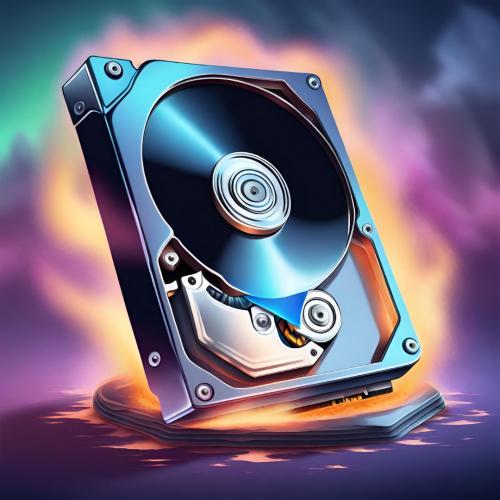Five Major Signs of SSD Failure That Shouldn’t Be Ignored

SSDs are the favored choice for today's generation if you want quick boot times, fast data read and write speeds, and low power consumption. SSDs perform admirably, whether you're playing online games or dealing with large amounts of data.
But if you depend only on your SSD for data storage, you should be aware that, like other technologies, SSDs can fail, resulting in data loss due to many factors such as hardware failure and power surges.
Unlike hard disks, which frequently give warning indications such as beeping or clicking sounds before failure, SSD failures typically happen without auditory warnings. To avoid data loss, it is essential to recognize the signs and symptoms of SSD failure. You can save your data against SSD failure by following the instructions in this article.
Five Major Signs of SSD (Solid State Drive) Failure That Shouldn’t Be Ignored
Here are some major signs that help you analyze the failing SSD symptoms:-
1. Data corruption:
This sign indicates that files and data stored on the SSD become corrupted or unreadable on a regular basis. Even after attempting to recover or repair these files, they may continue to create issues.
Data corruption can be seen as missing or distorted content in files, error messages when trying to open documents, or the inability to access specific files or folders. Data corruption on an SSD can happen due to various reasons, including wear and tear on the NAND flash memory cells, controller malfunctions, or firmware issues.
2. Slow Performance:
Slow performance is seen in a noticeable decline in the SSD's speed and responsiveness. You may experience longer boot times, delays when launching applications, and slower file transfer speeds.
Tasks that used to be fast and smooth may become frustratingly slow, affecting your working time management. Performance degradation can result from excessive data write and erase cycles and can lead to wear and performance issues over time.
3. SSD Crash:
The drive may not appear in the list of available storage devices during booting up the system or within the operating system's disk management utilities. When your computer's operating system fails to detect or recognize the SSD, it becomes inaccessible, and you cannot access any data stored on it. This issue can be particularly concerning because it suggests a possible hardware or connection problem with the SSD.
4. File System Errors:
File system errors are seen as error messages when attempting to access files or directories on the SSD. Common messages include "file not found," "disk needs to be formatted," or "file system is corrupt."
These errors indicate issues with the structure of the file system that manages data storage on the SSD. Corrupted file system structures can prevent normal data access. Such errors can result from sudden power loss, improper shutdowns, or hardware problems affecting the SSD's ability to maintain file system integrity.
5. S.M.A.R.T. Errors:
The Self-Monitoring, Analysis, and Reporting Technology (S.M.A.R.T.) system is a built-in feature of SSDs that monitors various drive health parameters. S.M.A.R.T. errors are warnings or error messages reported by the SSD's monitoring system when it detects issues such as excessive temperature, bad sectors, or imminent drive failure.
These errors can provide early warning signs of possible SSD failure, letting you take action before data loss happens.
What to Do When You Face SSD Failure?
In the event of SSD failure, first determine the nature of the data loss:
Identify the type of data loss, whether it's corrupted, deleted, or part of a crashed SSD.
Distinguish between logical issues (software-related) and physical issues (hardware problems).
If you are comfortable using built-in tools and are confident that they can solve the issue, go ahead. However, if you're unsure or multiple DIY attempts have been unsuccessful, it's best to seek professional help. Contact Techchef Data Recovery for a quick and effective solution.
Why Techchef is the Best Choice for SSD Data Recovery?
With years of experience and expertise in data recovery, Techchef is the top choice for countless clients. Our commitment to reducing turnaround time is a testament to our success. We provide the facilities of class 100 clean rooms, data security, and advanced tools and technology for data recovery. We specialize in resolving various types of data loss situations, such as deleted, formatted, and corrupt files.
Conclusion
By following the signs of SSD failure written above, you can save your data from being lost and take action on time, but if you face a situation of data loss, talk to our professionals in data recovery. Contact us at 1800-313-1737 or mail us your query at enquiry@techchef.in










Comments